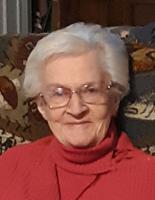ALBANY — Two months after nursing homes in New York were declared off limits to visitors — children, spouses and other kin of residents included — state officials have advanced no plan for allowing them to return to the beleaguered facilities.
Nearly 6,000 New York nursing home residents have died from COVID-19 infections since Gov. Andrew Cuomo declared a disaster emergency on March 7. Experts believe the fatality toll will be much higher once patients who died after being transferred to hospitals are included.
Advocates for nursing home patients have long contended that frequent family visits to the facilities helps to improve the level of care and keeps administrators and staffers on their toes, as relatives of the residents are often the source of complaints to regulators.
Hospitals have had similar limitations on visitors. But on Tuesday, Cuomo said 16 hospitals across the state — including Bassett Medical Center in Cooperstown — will begin participating in a pilot project next week that will allow visitors who agree to wear masks and other protective equipment and agree to have their temperature taken. The safeguards are intended to keep sick people from spreading their illnesses to hospital patients and medical workers.
The New York chapter of AARP, a group that advocates for older adults, is now pushing the Cuomo administration to lay out a plan for allowing nursing home visits to resume, questioning why no guidance has been offered even as visits at some hospitals have been approved.
"One of the things we hear most often is people worrying about loved one in nursing homes because they aren't able to communicate with them," said Ferris.
He said AARP is calling on Cuomo to sign an executive order requiring the homes and long term care facilities to provide tablets or other communication technology that will allow patients to keep in touch with relatives while the ban on visits remains in effect.
"The thing in life that just cripples people," he said, "is the fear of the unknown."
For the past two months, Mark Buddle, a physical education teacher at Schalmont High School in Schenectady County, said he worries about his 88-year-old father, diagnosed with dementia and residing at a nursing home not far from his own residence, because he can't visit him.
"This has to be very stressful on him because he hasn't seen us in such a long time," the son said. "I would help him with his fingernails, trim his hair, make sure he had his clothes. Clothes can get lost and you don't get to see things if you're not there every day."
Buddle said he is growing frustrated over the fact the governor's office has offered family members of nursing home patients no indication of whether visits can resume during the various phases of reopening the economy.
"I have heard nothing from the state about having any metric (for infects and hospitalizations) that would be needed so family members can know when things are going to happen," he said.
Contacted by CNHI, a spokeswoman for the state Department of Health, Jill Montag, noted the agency has issued "guidance" to nursing homes requiring them to "provide other methods to meet the social and emotional needs of residents, such as video calls, assigning staff to serve as the primary contact to families for inbound calls and conducting regular outbound calls to keep families up to date."
"This guidance should continue to be followed until further notice," Montag added.
Late Monday, in Washington, the federal Centers for Medicare & Medicaid Services suggested nursing homes not allow visitors until all residents and staff members have been tested for the COVID-19 virus to ensure there are no known cases in a facility. The agency suggests that nursing homes be among the last businesses to reopen after restarting other segments of the economy.
The decisions on whether they can have visitors again, however, are made at the state and local levels of government.
Richard Mollot, director of the Long Term Care Coalition, a group that advocates for nursing home residents and has spotlighted concerns such as understaffing, said strong safeguards should be in place at the facilities to keep the virus in checks before visitors are allowed to return.
He suggested cell phones and tablets could be purchased by home operators to facilitate communication with family members, noting the homes are now receiving high reimbursement rates from government health care programs.
Mollot said he would like to see the state government be more transparent about the conditions that must be met and more information about planned protocols for the resumption of visits.
Meanwhile, the state took another step in reopening the economy, allowing the Capital Region to join six other upstate regions where a limited number of businesses have been allowed to resume operations.
The New York City region and it suburbs have yet to be cleared for reopening because of a relatively high level of infection transmission.
Joe Mahoney covers the New York Statehouse for CNHI’s newspapers and websites. Reach him at jmahoney@cnhi.com








Commented
Sorry, there are no recent results for popular commented articles.